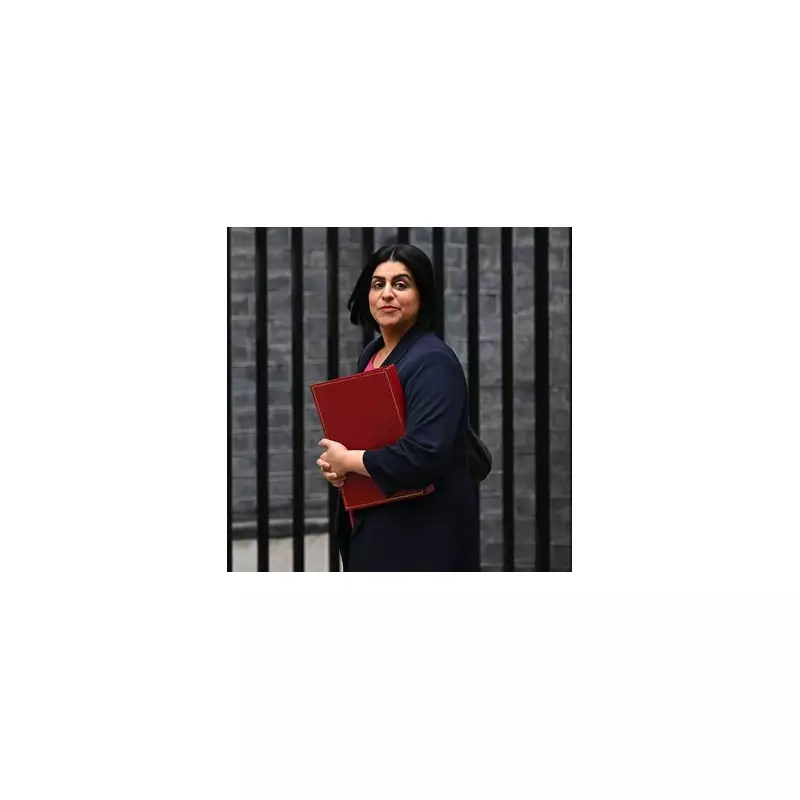
Home Secretary Shabana Mahmood has launched the most significant overhaul of Britain's asylum system in decades, declaring the UK has been insufficiently tough on removing failed asylum seekers while facing immediate criticism from within her own party.
Major Policy Shifts Announced
In a comprehensive policy document unveiled on Monday, the Home Secretary outlined a series of hardline measures representing what she termed "the biggest shake-up in a generation". Ms Mahmood directly criticised previous governments for being a "soft touch" and asserted that the UK has demonstrated an unwillingness to show necessary resolve in returning those without legal status.
The reforms include extending the period before asylum seekers can apply for permanent settlement to 20 years, with status reviews occurring every two-and-a-half years that could lead to removal if home countries are deemed safe. The appeals process will be streamlined to a single opportunity to challenge refusals, aiming to address a backlog of 51,000 cases recorded in March.
Controversial Family Removal Policies
Among the most contentious measures is the government's new approach to family removals. The Home Secretary revealed that officials have been instructed to overcome hesitancy about removing families with children, citing approximately 700 Albanian families currently housed at taxpayer expense despite not being classified as at risk upon return.
Families will initially be offered financial support to return voluntarily, but the government will consult on processes for enforced removal of families, including children. In a significant policy shift, the document also confirms the government is exploring resuming enforced returns to Syria following the overthrow of Bashar al-Assad's regime.
Cross-Party Backlash and Support
The proposals have drawn sharp criticism from Labour backbenchers, with MP Nadia Whittome telling the Commons: "It's shameful that a Labour government is ripping up the rights and protections of people who have endured unimaginable trauma." She questioned whether the Home Secretary took pride in receiving praise from far-right figure Tommy Robinson, who welcomed some measures on social media.
Meanwhile, Reform UK deputy leader Richard Tice remarked that Ms Mahmood sounded as though she was "bringing an application to join Reform." The Home Secretary defended her approach, warning that unless the government regains control of the asylum system, "those who seek to divide us will grow stronger" - a clear reference to Reform UK's influence.
Additional Measures and Safeguards
The reforms introduce stricter conditions for support, with asylum seekers who own valuables such as cars, e-bikes, or significant gold assets required to contribute to their accommodation costs. Those entitled to work but refusing employment, or displaying disruptive behaviour in accommodation settings, will face sanctions.
Ms Mahmood emphasised that the UK remains "tolerant and generous" while arguing the system had become the "destination of choice in Europe" for people smugglers and migrants. She announced plans to open new capped safe and legal routes, expand community sponsorship programmes, and create pathways for displaced students to study in the UK.
However, the legal duty to provide asylum seekers with accommodation and financial support will end, with support becoming conditional on compliance with UK law and cooperation with relocation requests.
Personal Defence and Moral Mission
When accused by Liberal Democrat home affairs spokesman Max Wilkinson of "stoking division" with immoderate language, the Home Secretary delivered an emotional response referencing personal experiences of racism. "Unlike him, unfortunately, I am the one that is regularly called a f****** Paki and told to go back home," she told MPs.
She described fixing the broken asylum system as a "moral mission" necessary to stop creating division, stating she wished she had the privilege of not witnessing how divisive the issue had become across the country.
Refugee Council chief executive Enver Solomon criticised the reforms, warning they "risk creating more delays, more stress and more inhumane treatment" rather than solving systemic problems. Despite the controversy, Prime Minister Keir Starmer defended the changes as necessary to create a "stronger deterrent effect and rules that are robustly enforced."





